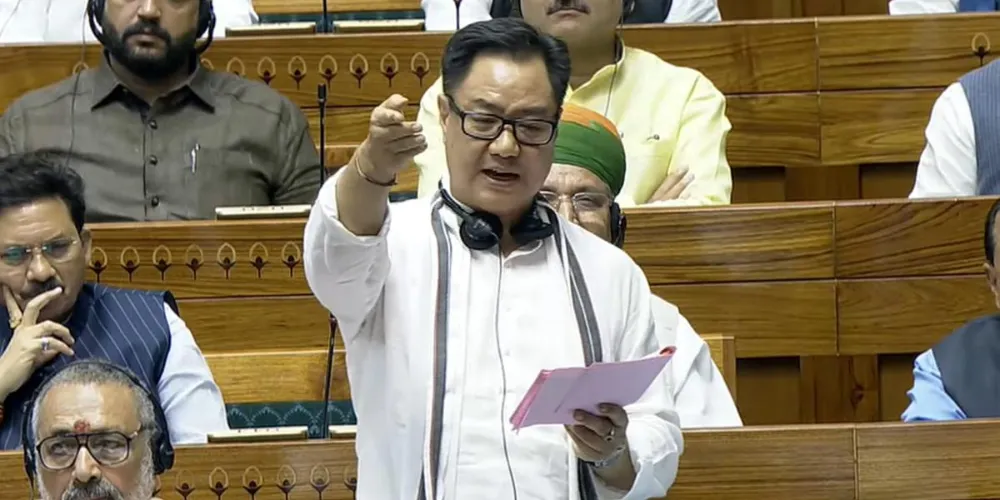A fresh political storm has emerged with the Congress party accusing the Bharatiya Janata Party (BJP) of using the proposed Waqf Bill as a tool to further its agenda of communal polarisation. The Congress claims that the bill is designed to create social divisions and target minority communities. This accusation adds to the ongoing political debate around the BJP’s policies and their potential impact on religious harmony and social cohesion.
Congress’s Criticism of the Waqf Bill
The Congress party has raised strong objections to the Waqf Bill, arguing that it is part of a larger strategy by the BJP to foster religious divides. According to Congress leaders, the bill introduces changes that could marginalize the Muslim community while amplifying tensions between different religious groups. They believe the bill is a calculated move to stir communal sentiments ahead of upcoming elections.
Congress has further argued that the bill undermines the autonomy of Waqf boards, which manage properties dedicated to religious and charitable purposes. By altering the legal framework surrounding these boards, Congress alleges that the BJP is targeting minority institutions and creating an atmosphere of fear and mistrust.

BJP’s Defense of the Waqf Bill
In response to the allegations, the BJP has defended the Waqf Bill, stating that it aims to bring transparency and accountability to the management of Waqf properties. According to the ruling party, the bill addresses issues of misuse and mismanagement that have plagued Waqf boards for years. The BJP argues that the proposed changes are not targeted at any community but are instead intended to ensure better governance and protect public interest.
The BJP has also dismissed Congress’s claims of communal polarisation, accusing the opposition party of spreading misinformation. Party leaders maintain that the bill is a step toward legal clarity and efficiency, rejecting any suggestion that it has a divisive agenda.
Political Implications of the Waqf Bill
The Waqf Bill has significant political implications, particularly in states with a sizeable Muslim population. Congress’s opposition to the bill signals an attempt to position itself as a defender of minority rights. By framing the bill as a polarising tool, the party aims to appeal to voters concerned about religious freedom and social justice.
For the BJP, the bill aligns with its broader narrative of legal reform and governance. By focusing on the transparency argument, the party seeks to present itself as committed to curbing corruption and ensuring fair administration of religious assets. The political discourse surrounding the bill reflects a broader competition between the two parties to shape public perception and secure electoral gains.
Conclusion
The controversy over the Waqf Bill highlights the deepening divide between the Congress and BJP on issues of religious governance and social harmony. While the BJP frames the bill as a necessary reform, Congress views it as a deliberate attempt to foster communal tensions. As the debate continues, the bill is likely to remain a focal point in the broader political battle over identity, governance, and the protection of minority rights.



